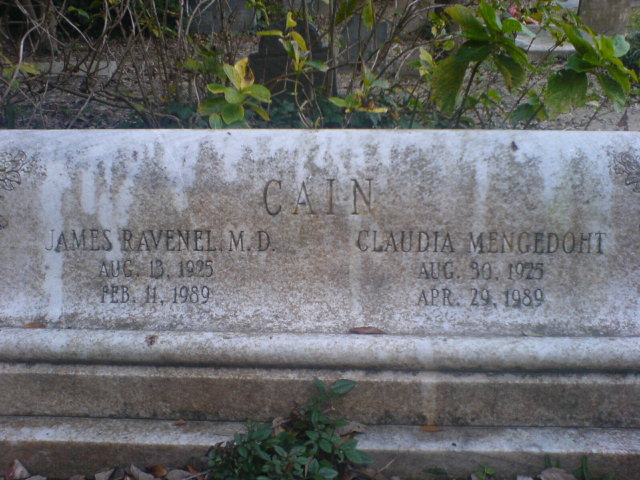Venerable Oaks and Steel Magnolias
 Venerable Oaks and Steel Magnolias: A Response to “A Rose for Emily"
Venerable Oaks and Steel Magnolias: A Response to “A Rose for Emily"
By
Varo Borja
The past is not dead. In fact, it’s not even past. – William Faulkner
The sun set properly upon the Southern Way in the wake of the red tide of defeat suffered by the gray coats that ended the Civil War and ushered in the period of carpetbaggers, worthless Confederate cash, and corrupted traditions known as Reconstruction. Out of the alloy of war, defeat, dissimulation, poverty, and time was hammered some of the finest prose ever to be composed by an American. William Faulkner presented to the world, through his stories, the stage on which the great drama of the human condition could be explored at depths previously unforeseen, but perhaps his greatest gift to the world of letters was to explore this drama in microcosm, especially as the theatre of the human heart was beheld in the South. In “A Rose for Emily” Faulkner laid bare the duties and passions of a woman and a town confined within the amphitheater of Jefferson, Mississippi many years after the last, thin, gray wraiths had disappeared beneath the tombstones of Faulkner’s, “cedar-bemused cemetery” (Meyer 95). However, the specters of Southern pride and antebellum anachronism are alive throughout this self-proclaimed “ghost story” as the passage of time refuses to give rest to these ever-present phantoms of the past. Primarily, in “A Rose for Emily,” the past exerts its influence upon the present through the machinations of tradition and duty; these devices exert their sway upon each of the sexes in different ways and assign each sex specific roles, but much like the gray uniforms of their not-so-distant kin, the gender roles of the good people of Jefferson become blurred at times, if not entirely inextricable from each other.
As the only real first-class citizens of the American south, the traditional role of southern white men was to fulfill their duty as protectors and patriarchs. First and foremost, the past holds sway in the present tense through the role assigned the southern man of protector of the weak; in this case the “weak” one happens to be Emily. Near the beginning of the story, we are informed that Colonel Sartoris, the once-renowned patriarch of Jefferson, protected Emily in a financial sense by remitting her taxes (Meyer 96). However, to preserve not only Emily’s livelihood but her pride as well, Colonel Sartoris is forced to resort to an elaborate ruse to accomplish this feat of contrivance, therefore resorting to silly, feminine subterfuge (Meyer 96). Furthermore, the men of Jefferson protected Emily’s reputation by scattering lime on her yard to avoid a lingering stench emanating from her mansion. However, the good men of the town “slunk about the house like burglars” (Meyer 97) in a tragic-comedic act of desperate, duty-bound civil service, taking special care not to be seen and further Ms. Emily’s disgrace. This scene portrays the elders of Jefferson more as hens than as roosters, and lends a feminine subtlety to their innate southern chivalry.
The traditional duty of patriarch was exemplified by southern men as the heads of their families and their towns; the supreme patriarch in “A Rose for Emily” is her father. Emily’s father exerts his influence, from the past, upon Emily in a figurative sense by becoming irreplaceable in her life and demanding, from the grave, utter obedience and ongoing implied deference. The childlike crayon drawing found in Emily’s home at the end of the story is the perfect example of Emily’s unwavering devotion to her father, and represents a lifetime, by her, paid in homage to the ghost of a dead patriarch (Meyer 101). Emily’s father also exerts his influence, from the past, upon Emily in a literal sense as shown by the choices she makes well into adulthood. Emily would rather kill her lover than suffer her father’s name to be tarnished through the unutterable act of adultery. However, the traditional role of patriarch is somewhat blurred by Emily’s character in the story. Emily also demands utter obedience from the druggist (Meyer 99) and deference, although somewhat backhanded and hypocritical, is paid her throughout the story, especially in her encounter with the city authorities (Meyer 96) and the visit paid her by the Baptist minister (Meyer 99).
The traditional role of the Southern woman, as portrayed in “A Rose for Emily” is one of pity-driven and gossip-laden domestic service, dutiful subversion and silly subterfuge. When Emily’s father dies, the ladies of the town fulfill their domestic duties by calling on Emily in her time of crisis. Faulkner must add, however, that “at last they could pity Miss Emily”, as if pity were a pre-requisite for love (Meyer 97). The ladies of the town also fulfill their domestic duties via the traditional Southern ingredient of gossip, which they relish as if it were a fine Swiss chocolate or a respectable form of vice, much like Homer Barron’s cigar (Meyer 99). The distant relatives of Emily, the Alabama Griersons, fulfill their obligation to subvert the scandalous activities of their wayward cousin and Homer Barron upon their arrival in Jefferson, all at the pious behest of the minister’s wife (Meyer 99). Finally, the ladies of the town fulfill their time- honored penchant for silly subterfuge when they enter Emily’s house, upon her death, with “hushed, sibilant voices and…quick, curious glances” (Meyer 101). Faulkner implies that the ladies of the town are more concerned with the lurid pleasure of seeing the inside of Emily Grierson’s house one final time than in paying proper tribute to the fallen, once-dreaded matriarch of Jefferson. However, upon further perusal of the text these same silly, traditionally feminine, and half-cowardly actions are found to be carried out by the men of the town as well in the sometimes-begrudged and constantly-chronicled domestic service performed by the Aldermen and elders of Jefferson on Emily’s behalf, particularly displayed in the awe and respect shown her when confronted (Meyer 96). Moreover, it is the voice of the town itself, not just the women, that claims alternate pity and indignation at the eccentricities and extravagances of the Grierson matriarch (Meyer 99).
In conclusion, the gender roles exemplified in “A Rose for Emily”, although interwoven and ambiguous at times, are just as true today as when this story was penned over fifty years ago. I am a Southerner and always have been, and I have experience with each of the roles portrayed in this story through the agency of my own family. My grandmother, the alternating spy, backbone, and comfort for our family here in Boone could just as easily be a staunch Alabama Grierson. Furthermore, my grandfather, a quiet, reserved and brave, yet compassionate man would most certainly spread lime on the yard of a neighbor in the dead of night to avoid general embarrassment, yet he still had the fortitude to serve his country during times of trouble. I have ghosts of my own in local “cedar bemused cemeteries”. Several of my relatives have served both the home front and the front lines in the conflicts of this country, much like those elders of Jefferson who stemmed the tide of Northern aggression in the 1860’s. Faulkner portrayed his subjects accurately in all their anachronisms and ambiguities, but the gender roles of the southern people are more than an admixture of cowardice and fortitude. These roles add vibrant splashes of color to the gray clothing of the south found in Faulkner’s stories and still provide diversity, humor, and depth to the experience of living in the south today.


